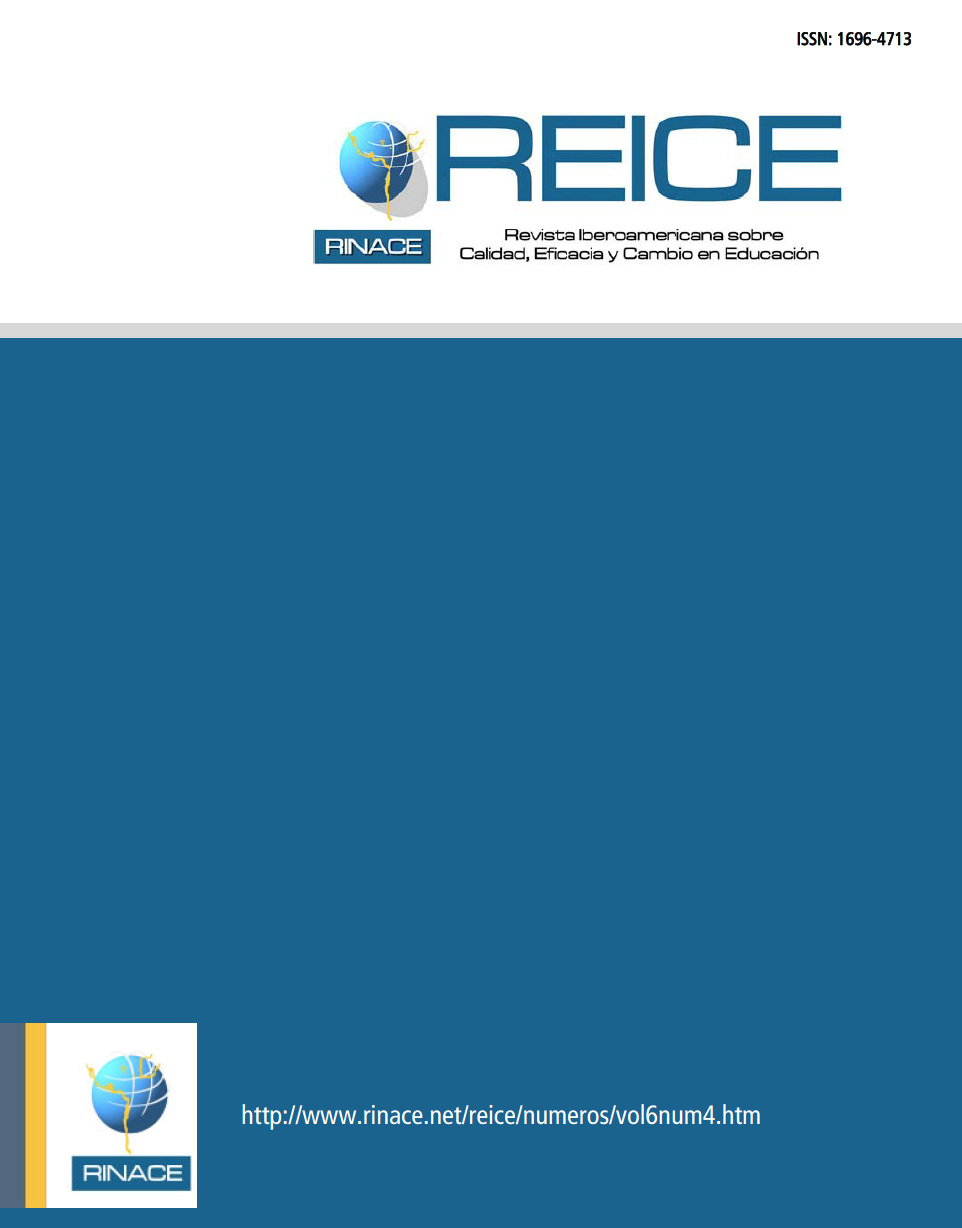Analysis of the Pedagogical Practices and their Effect on the Quality of the Learning Environments of the Párvulos in the 2nd Transitional Level of the Nursery Education
Keywords:
Quality, Effectiveness, Change, Improvement, Equity, Innovation.Copyright (c) 2016 REICE. Iberoamerican Journal on Quality Effectiveness and Educational Change

This work is licensed under a Creative Commons Attribution-NonCommercial-NoDerivatives 4.0 International License.
Abstract
The Chilean Educational System is in a process of transformation. From a bureaucratic management, where the totality of the actions depended on external decisions, we move to a delegation that leads to a growing autonomy of the educational centers and, therefore, of their actors. With regard to the level of Nursery Education, the reform initiatives have increased at the end of 2001 and with greater intensity in the years 2003 and 2004. The modalities of organization of the curricular contents, the methodological strategies, and the evaluation of the quality of the teaching - learning processes are open topics, that the implementation of the Curricular Bases for Nursery Education has come to deepen the current theoretical - methodological debate. The real scenario shows us that the Curricular Bases for Nursery Education have as pretense, to promote (and ensure) learning opportunities considering the characteristics and potential of children. In this scenario, the professional requirements to implement these Bases, highlight the tensions between the demands that these pose and the level of skills of educators to achieve them, (demonstrating them). The tension noticed, definitely, impacts (ra) in efficient decision making for the improvement of pedagogical management in the classroom. The difficulties observed in the mentioned context have not been evidenced from the different lines of investigation in force
